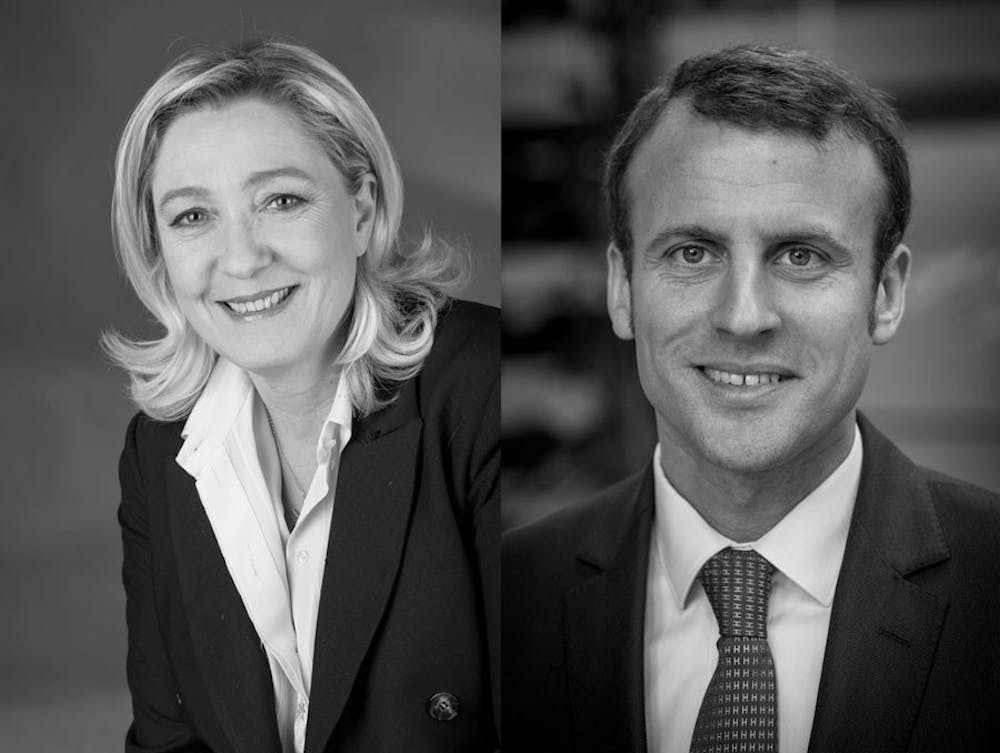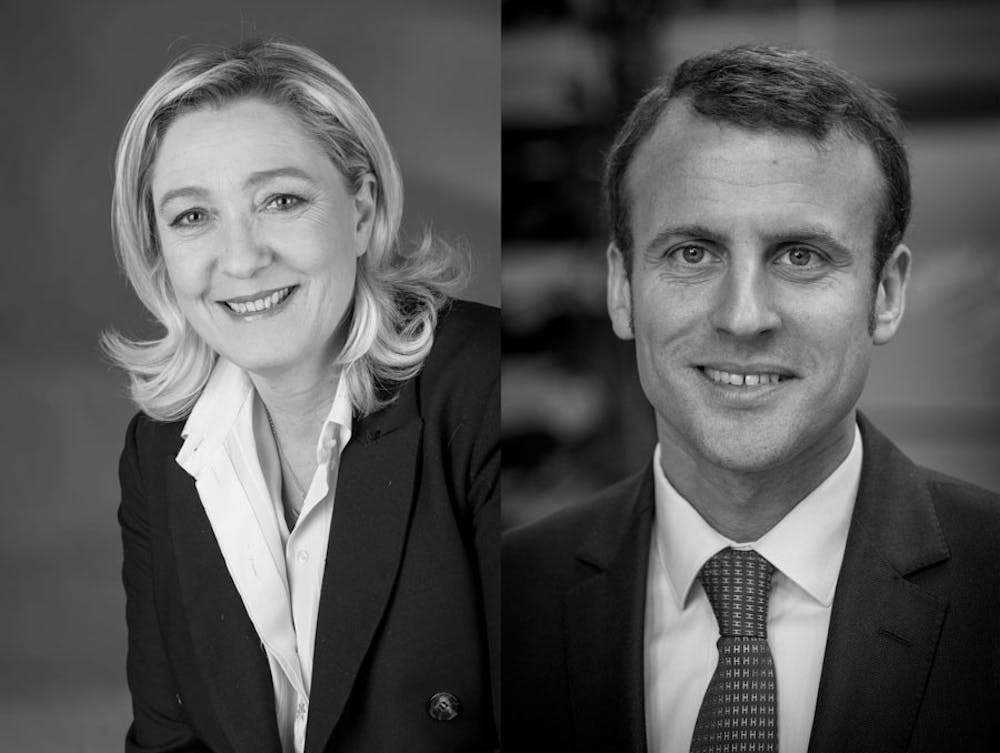
By Wilson Alexander | Contributor
The events of the last twelve months (Brexit, the election of Donald Trump and the escalating tensions in North Korea, to name a few) have brought uncertainty to the global political landscape, unknown since perhaps the end of the Cold War. The current world order, built on international collaboration, has been shaken and could be further disrupted by the French presidential election this Sunday.
Sunday's vote is the second in a two part election process. In France, the first election is open to all candidates, with the top two advancing to the final runoff. According to the BBC, the "liberal centrist" -- a political moderate in favor of more European integration -- Emmanuel Macron won the first round on April 23 with 24 percent while the "nationalist" -- favoring putting France's interests above those of the European community -- Marine Le Pen took home 21 percent.
Both Macron and Marine Le Pen represent parties that traditionally held little power in the French government. The National Front, led by Marine Le Pen, was directed by her father, Jean-Marie Le Pen from 1972-2011, according to Encyclopedia Britannica. Emmanuel Macron's En Marche! ("On the Move!") party was founded in 2016, as reported by the BBC.
Marine Le Pen is known for her opposition to the European Union (EU), her desire to limit immigration and her France-first rhetoric, and overall political outlook vaguely reminiscent of Donald Trump.
On the other hand, Emmanuel Macron is considered more moderate, aiming to strengthen the European Union at a time when many from the far right (such as his opponent, Le Pen) are denouncing it.
The key issues in the French election include the economy, national security and the country's place in the European Union. The French economy has a 10 percent unemployment rate, 25 percent for those under 25 According to BBC, Marine Le Pen has stated she wants to strengthen it by reducing the country's commitment to the European Union and implementing policies that are more French-centric, even to the point of abandoning the Euro.
Macron has taken the opposite stance, wanting to continue using the Euro and reduce government spending and jobs, according to Spain's El País and the BBC. Voters seem to favor his stance, with three out of four opposed to discontinuing use of the Euro said the Spainish newspaper El País.
France-maybe more than any other European country-has suffered from the upsurge of terrorist attacks during the last several years, which have taken over 230 lives since the beginning of 2015, according to BBC.
Le Pen has taken a hard stance on national security and immigration, threatening deportations for those on intelligence watch lists and restricting immigration to 10,000 persons per year, as reported by CNN and BBC. She also has called for withdrawing from NATO, increasing defense spending and collaborating with Russia to defeat ISIS, according to the Financial Times.
Macron is more open to permitting refugees and asylum seekers to enter France and has voiced support for German Chancellor Angela Merkel's pro-refugee policies. Similar to his opponent, he wants to increase defense spending but favors collaborating with the United States to tackle ISIS.
Despite their radically different agendas, isolationist Le Pen and centrist Macron both need the cooperation of the legislature to enact their agendas. According to the BBC, the legislative elections are in June, and it is unlikely that the party of either presidential candidate will be able to garner a majority in the legislature, necessitating cooperation and compromise with other parties.
In addition to its implications for the French people, the election on May 7 holds implications for the entire world. France is one of the most powerful countries in the European Union, and were it to leave that organization, the EU's power and importance would be significantly diminished, causing political and economic ripple effects that would be felt all over the globe.
This Sunday, French citizens have a choice, not only between two candidates, but also between two vastly different perspectives of the world and their country's place in it. Will France follow the United Kingdom into the uncharted waters of independence from the EU or continue down the road of European integration they have walked for the last few decades? Only the French people know for sure.





